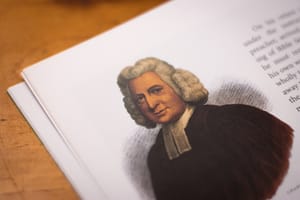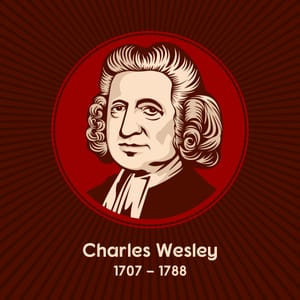Westminster Conference
The eclectic nature of the 2009 Westminster Conference’s papers, delivered at the Whitefield Memorial Church in London on 8-9 December, was reflected in the conference’s title – ‘Calvin, Geneva and revival’.
The papers ranged from Garry Williams on ‘John Calvin’s agenda: issues in the separation from Rome’, through Don Carson on ‘Calvin as commentator and theologian’, Stephen Clark on ‘1859 – a year of grace’, Robert Oliver on ‘Elizabeth and Calvin’, Ken Brownell on ‘Darwin before and after’, and Bruce Jenkins on ‘The Moravians and missionary passion’. Each paper was followed by 45 minutes of questions and discussion.
The two opening titles focussed on Calvin. The first brought out his teaching on worship and unity, and explored his emphasis on the flesh of Christ. The second examined the thoroughly Scripture-centred nature of Calvin’s ministry.
He was a voluminous Bible commentator (preaching his material before committing it to written circulation) and a theologian whose Institutes of the Christian religion ran through several editions, with ever-deepening analysis.
Calvin’s commitment was to a literal rather than allegorical sense of Scripture. This ran counter to the approach of his day and was so pronounced that, arguably, he rather neglected legitimate Christology in his OT commentaries. This inconsistency, however, was not true of Martin Luther’s commentaries.
Flaws
Stephen Clark’s paper surveyed the 1859 revival, with particular reference to North America and Ulster. Robert Oliver explained how Calvin’s introductory letter to Queen Elizabeth I of England met with distinct chilliness from the new monarch. Yet Calvin’s indirect influence on the Reformation in England was profound.
A lucid and fascinating paper on the Moravians highlighted their zeal for mission, which compensated for their undeniable weaknesses. Count Zinzendorf was the source of some aberrations, introducing, for example, embarrassingly inappropriate expressions into Moravian devotional life. (One wonders if he was eventually afflicted with an undiagnosed psychiatric condition.)
Creating the most discussion was an able account of the reactions of nineteenth-century Princeton theologians to Darwin’s theories. Some of these theological giants, including B. B. Warfield, were surprisingly concessive to evolutionary thinking.
For them, Darwin’s theories were a new force to wrestle with. But it is a matter of regret that, given today’s irrefutable evidence about the corrosive nature of evolutionary thinking, theistic evolution still finds advocates within the evangelical community. So, it was refreshing to have a reading from Genesis 1 in the devotions prefacing this session.
Roger Fay



















